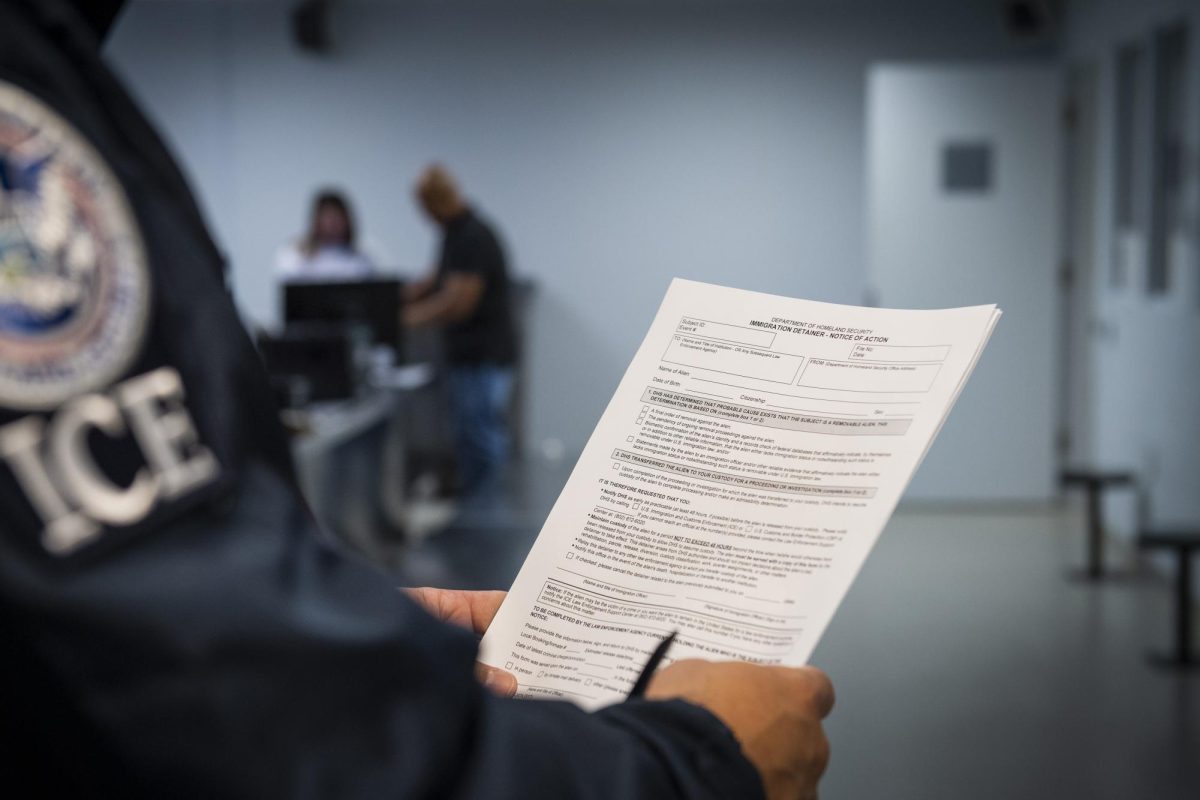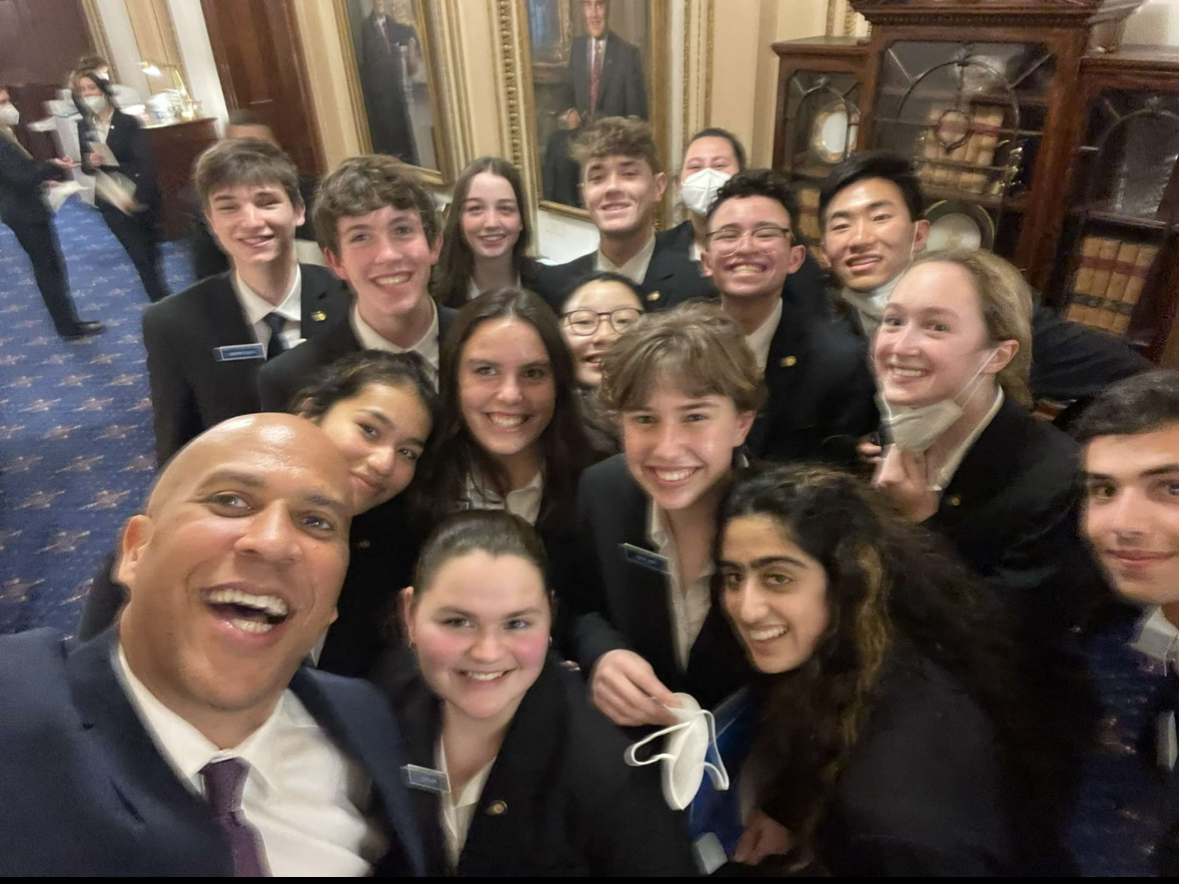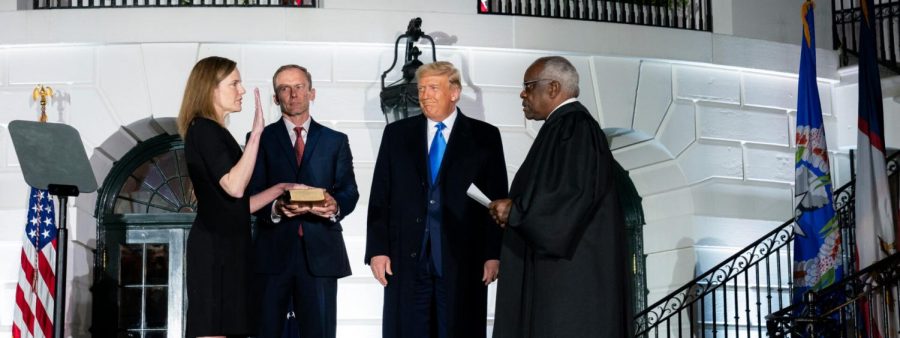Amy Coney Barrett Appointed to Supreme Court on October 26
November 5, 2020
Amy Coney Barrett was sworn in Monday, October 26, to fill the recently vacated Supreme Court spot. She is replacing the late Ruth Bader Ginsburg, who died on September 18.
Before her death, Ginsburg told her granddaughter, “My most fervent wish is that I will not be replaced until a new president is restored.” However, that did not happen.
Amy Coney Barrett’s confirmation took place only a week before Election Day, when over 58 million Americans had already voted, according to ABC News. Her Senate vote was expedited, with a four day confirmation hearing, and was one of the closest in U.S. history, with the vote being 52-48.
According to the New York Times, this is the first time in 151 years that a justice was confirmed without the support of any member of the minority party. Democrats think that the president should have waited until after the election to nominate a candidate so voters could have a say. Republicans believe that as the majority party it is their right to nominate a justice when a seat opens.
Barrett’s presence on the Supreme Court now shifts the court to a six to three conservative majority. Since she is only 48 years old, her occupancy can affect America for decades (Supreme Court justice is a lifetime appointment).
In 2016, an election year, Barack Obama nominated Merrick Garland to fill the Supreme Court spot that became vacant when Justice Antonin Scalia died that February. But, Senate majority leader Mitch McConnell said that the justice should be chosen by the next president, and that the people should have a say.
This is why many Democrats and liberals are upset with the Senate’s decision, and say that it is hypocritical.
“We should not be voting on a Supreme Justice,” said Democrat Bernie Sanders on Twitter.
Many liberals are worried that Amy Coney Barrett’s views on abortion, same-sex marriage, and health care could have consequences on many people.
“The nomination of Amy Coney Barrett is truly historic. This is the most openly pro-life judicial nominee to the Supreme Court in my lifetime. This is an individual who has been open in her criticism of that illegitimate decision, Roe v. Wade,” said Republican Senator Josh Hawley. Roe v. Wade protects a woman’s right to have an abortion.
“You may win this vote, and Amy Coney Barrett may become the next associate justice of the Supreme Court, but you will never, never get your credibility back. And the next time the American people give Democrats a majority in this chamber, you will have forfeited the right to tell us how to run that majority,” said Democratic minority leader Chuck Schumer.
In a poll of nearly 170 Monroe-Woodbury students, only thirty say that the Senate made the right choice. The other 139 students voted that Amy Coney Barrett should not have been confirmed so close to Election Day, and that the Senate should have waited.
“They should’ve waited in case Biden is elected; he would be the new president and should be the one to make the decision if that happens. And even if Trump wins again, Biden still could have won,” said junior Julia Pierce. “I think it’s extremely hypocritical and ridiculous that eight months wasn’t fair, but somehow eight days is. [Republicans] should have followed through with what they said years ago.”
Junior Daniel Tomassi explained that he liked the addition of Barrett to the court because she would add to the court’s conservative majority, providing an additional buffer to conservative Justice John Roberts, who has sometimes ruled with the court’s liberal justices. Additionally, Tomassi said he approved of Barrett on a more personal level.
“I like her because she is a Christian who is a family person as she is a mother of seven,” said Tomassi.
Justice Barrett pledged to leave politics and personal beliefs out of her decision making on the bench. “The oath that I have solemnly taken tonight, means at its core that I will do my job without any fear or favor and that I will do so independently of both the political branches and of my own preferences,” said Barrett.






































